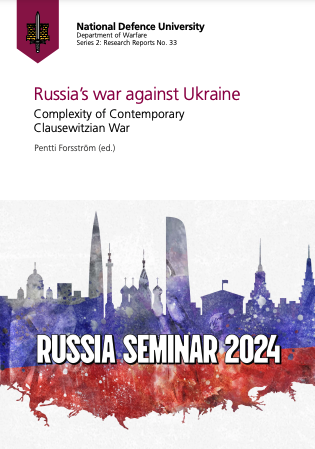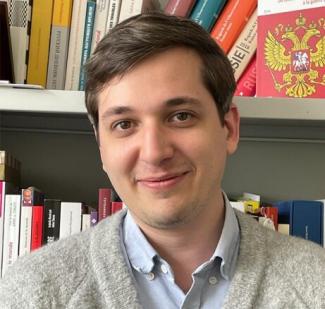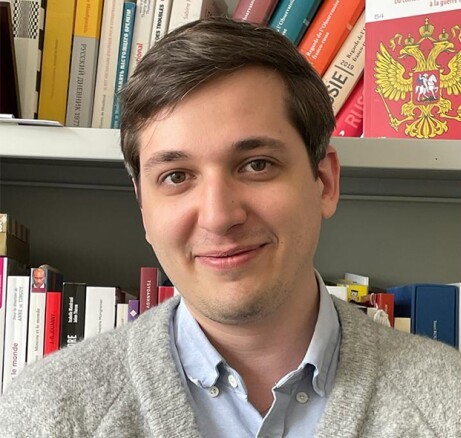Russian Strategic Thinking and Culture Before and After February 24, 2022: Political-Strategic Aspects

Written by Dimitri Minic, the scientific article "Russian Strategic Thinking and Culture Before and After February 24, 2022: Political-Strategic Aspects" in Russia’s war against Ukraine: Complexity of Contemporary Clausewitzian War by the National Defence University Department of Warfare, Helsinki 2024.

Introduction
Post-Soviet Russian military thinking was marked by the theorization of bypassing armed struggle, of which the “Special Military Operation (SVO)”, supposedly an illustration, was a fatal outcome. The Russian army had been unprepared for the long, high-intensity war that ensued from the failed SVO, and Russian strategic thinking had spent the last 30 years cultivating and digesting the idea that the weight of interstate armed struggle had considerably diminished, if not become optional. At the same time, the Russian army underwent reforms compatible with this theoretical evolution, resulting in the creation of more professional, flexible and well-equipped forces. The perception of the West and the specificities of Russian strategic culture also played a central role in post-Soviet Russian strategic thinking and practice.
The war in Ukraine was a high point of this thinking, culture and practice. The SVO has been commented on at length by Russian military elites, who assess its political strategic as well as military-operational dimensions . Here, we focus on the strategic and political dimensions of Russian military discourse, which still benefits from a relative freedom of expression that allows for (often indirect) criticism. Two main themes emerge from the Russian military review. The first concerns the nature and launch of the SVO. While the SVO is analyzed as a pre-emptive operation, its planning, preparation and the very timeliness of its launch have raised considerable criticism. The second concerns the reasons that Russian military elites believe legitimized the SVO. As an ontologically anti-Russian malevolent entity, the West is experiencing a decline that it is trying to prevent by any means possible, including seeking to destroy Russia. From this point of view, the SVO represents a double promise: accelerating the collapse of the West and laying the foundations for a new world order.
Several questions arise: what continuities and inflections can be identified in Russian strategic thinking after February 24? Did the SVO call into question or confirm ideas in the eyes of Russian military theorists? Did the SVO’s initial strategic failure and the ensuing adverse political consequences for Russia (sanctions, disconnection from the West) call into question certain beliefs held by military theorists? What limitations appeared in Russian military discourse after February 24?
This work is based primarily on the analysis of primary sources of Russian military literature, in particular the “scientific” military journals of the Ministry of Defense (MO) as the main (and historical) military-theoretical vector of the Russian MO and General Staff (GŠ), Voennaâ Mysl' (VM) – an open source where senior and general officers, active, reserve or retired, professors, researchers, directors and/or commanders (and even actors in the war in Ukraine) address their peers and the country’s highest military and political leaders. This article also benefits from the analysis of the primary sources present in my book (military dictionaries and encyclopedias, speeches by military and political officials, and strategic doctrine documents in particular), as well as from the approach chosen in the latter (articulation, in the analysis, of theoretical-military, strategic culture and biographical elements of Russian military elites). Lastly, it is in line with the chronological continuity of my book, which ended with an attempt to explain the SVO in terms of post-Soviet Russian strategic thought and culture, as studied between 1993 and 2021.

Available in:
Themes and regions
Share
Download the full analysis
This page contains only a summary of our work. If you would like to have access to all the information from our research on the subject, you can download the full version in PDF format.
Russian Strategic Thinking and Culture Before and After February 24, 2022: Political-Strategic Aspects
Related centers and programs
Discover our other research centers and programsFind out more
Discover all our analysesRussia, the Palestinians and Gaza: Adjustments after October 7th
The Soviet Union (USSR), and subsequently the Russian Federation as its internationally recognized legal successor, has consistently sought to play a visible role in efforts to resolve the Israeli-Palestinian conflict.
Deathonomics: The Social, Political, and Economic Costs of War in Russia
The report attempts to outline and examine a truly new phenomenon in Russian society, dubbed “deathonomics”—the making of a mercenary army against the backdrop of the Kremlin’s war in Ukraine, eventually replacing both the Soviet (conscript) and early new Russian (contract) armies. It notes that, by the end of 2023, this trend had turned the military service into one of the highest-paying professions in the country, something not seen in Russia on such a scale since the late 17th century.
Russia's Asia Strategy: Bolstering the Eagle's Eastern Wing
Among Russia’s strategic priorities, Asia traditionally played a secondary role compared to the West. In the mid-1990s, then Foreign Minister Yevgeny Primakov initiated a rapprochement with China and India. Then, in 2014, deteriorating relations between Russia and the West prompted Moscow to begin its “great pivot to the East”.
Kazakhstan After the Double Shock of 2022: Political, Economic and Military Consequences
The year 2022 represented a dual shock for Kazakhstan. In January, the country faced its most severe political crisis since independence, followed in February by Russia’s full-scale invasion of Ukraine, which cast uncertainty over the borders of post-Soviet states. These consecutive crises profoundly shaped Kazakhstan’s domestic and foreign policy.












